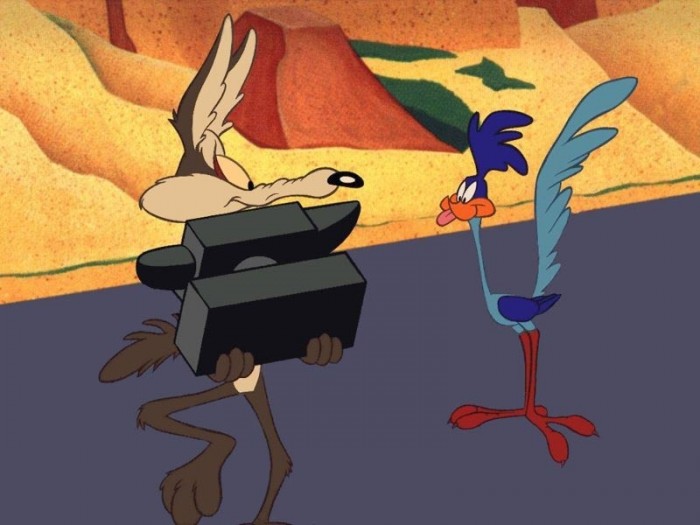As a child I remember waiting anxiously for Saturday morning to watch cartoons like the Bugs Bunny / Road Runner hour. This (obviously) was well before the era of cartoon-specific channels and 24 hour programming, so our choices were far fewer. Yet even then adults said that watching that stuff was ruining our minds, that the Three Stooges was creating a culture of violence, and that Batman was infusing us with bad pun-filled expressions!
According to a report from FOXNews there might be some truth – at least to the thoughts on the impact of cartoons:
The problems were seen in a study of 60 children randomly assigned to either watch “SpongeBob,” or the slower-paced PBS cartoon “Caillou” or assigned to draw pictures. Immediately after these nine-minute assignments, the kids took mental function tests; those who had watched “SpongeBob” did measurably worse than the others.
Previous research has linked TV-watching with long-term attention problems in children, but the new study suggests more immediate problems can occur after very little exposure — results that parents of young kids should be alert to, the study authors said.
The report goes on to specifically warn parents of the impact of WHAT is watched actually matters, whereas much previous work has focused only on HOW MUCH:
Christakis said parents need to realize that fast-paced programming may not be appropriate for very young children. “What kids watch matters, it’s not just how much they watch,” he said.
University of Virginia psychology professor Angeline Lillard, the lead author, said Nickelodeon’s “SpongeBob” shouldn’t be singled out. She found similar problems in kids who watched other fast-paced cartoon programming.
Finally, the study notes the importance of WHEN they are watching these shows upon their performance in schools and activities:
She said parents should realize that young children are compromised in their ability to learn and use self-control immediately after watching such shows. “I wouldn’t advise watching such shows on the way to school or any time they’re expected to pay attention and learn,” she said.
Nickelodeon was understandably upset at having SpongeBob singled out and noted the show “is aimed at kids aged 6-11, not 4-year-olds.”
“Having 60 non-diverse kids, who are not part of the show’s targeted (audience), watch nine minutes of programming is questionable methodology and could not possibly provide the basis for any valid findings that parents could trust,” he said.
There were several other potential limitations with the study noted, from the sampling to the lack of pre-testing … but the bottom line is that it is yet another wake-up call to parents. For a while parents would allow ‘TV babysitters’ until realizing that was bad in just about every way and that they needed to balance TV with other activities. Now parents need to realize that simply setting a timer isn’t enough – they need to be involved with what their kids are watching and what those shows do to their moods and behavior.
These same things are true with video games – when we first introduced our kids to home console gaming several years ago one child would show marked excitement levels after playing action-oriented games that they wouldn’t get from something like ‘Animal Crossing’.
What do you notice with your kids? Do you see issues with high-intensity video stimulus, or do you think this is just a biased report from someone with an agenda? Let us know in the comments!

